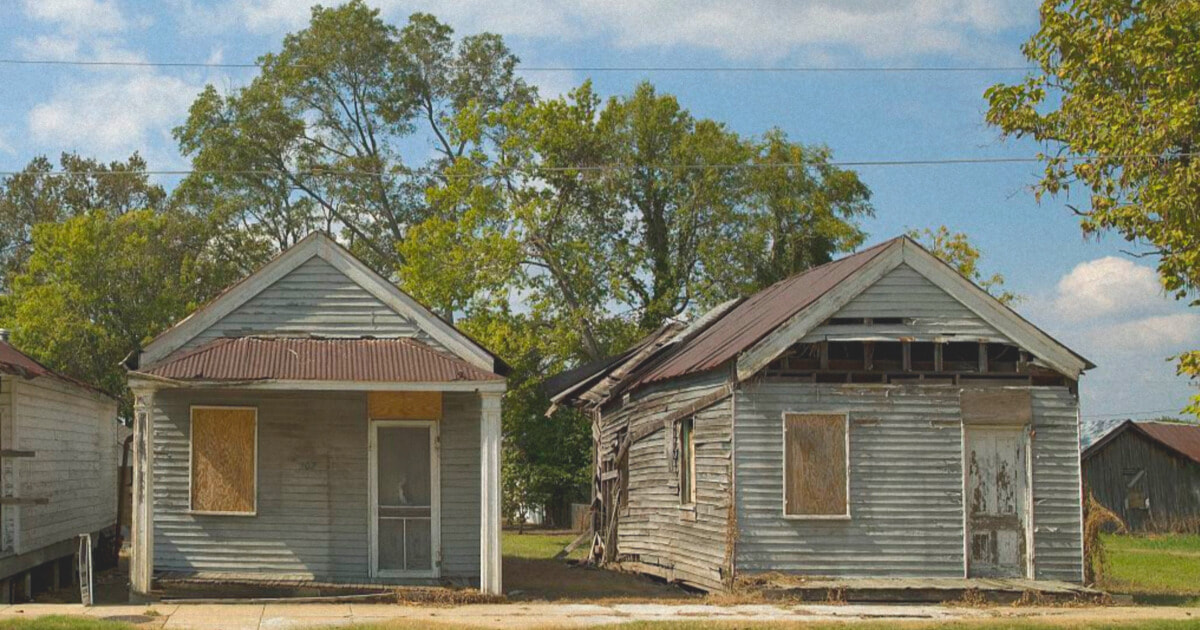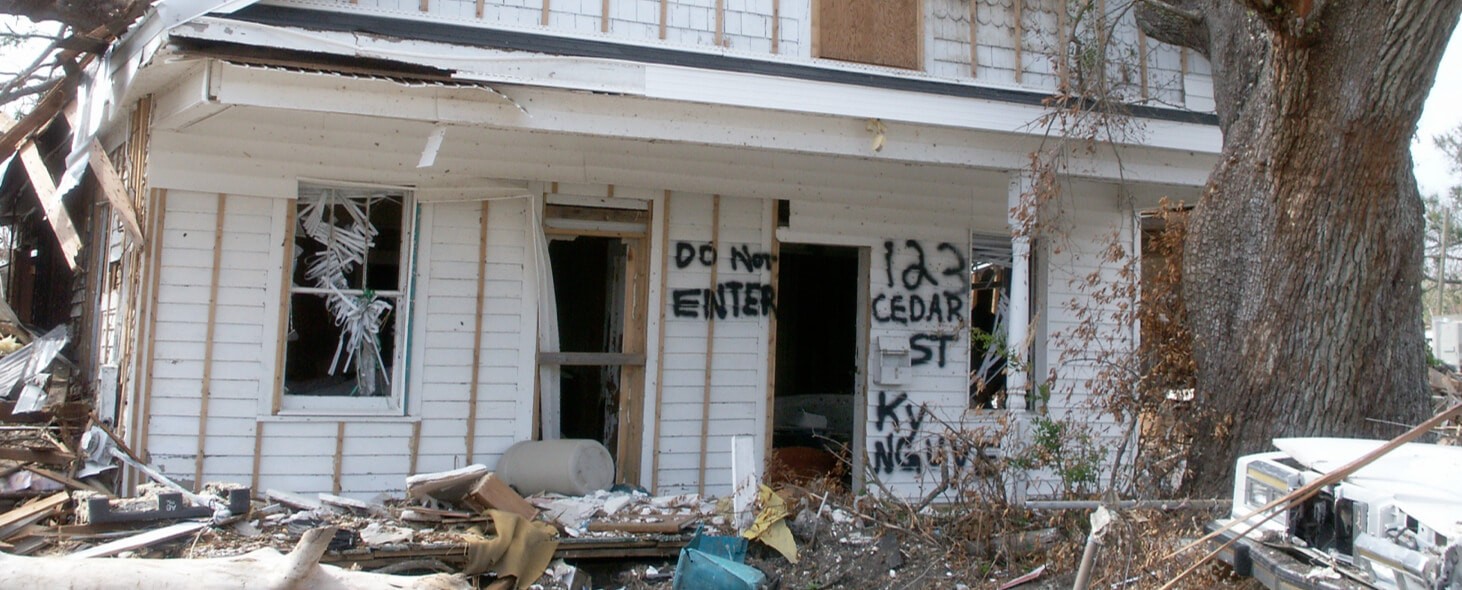|
It may come as a surprise to many Americans that the state with the lowest level of homelessness is also its poorest. Mississippi, with a poverty rate of 19.4%, also has the nation’s lowest homelessness rate of 5 per 10,000 people. But how has Mississippi, a state with a consistently Republican government, managed to tackle homelessness? To put it simply, it hasn’t. Mississippi’s homelessness rate is so low largely because it is a rural state which keeps its cost of living low and many of its renters pay significant portions of their incomes to live in dilapidated housing. In Mississippi 54% of the population lives in rural areas. 1 And with only its largest city, Jackson, breaking 100,000 people, there are few densely populated areas where cost of living tends to be highest. As such, the cost of living in Mississippi is incredibly low – around 15% below the national average. 2 With housing prices being particularly sensitive to population density, most people in Mississippi are able to find a place to live. 3 One additional factor driving down Mississippi’s cost of living is its neoliberal policy to maintain low taxes and little regulation. But before conservatives get too excited, it is important to note this policy is also a driving force for the immiseration of Mississippi’s poorest citizens. While housing costs are low, so are incomes. With a median income of $49,111, one of the lowest in the country, Mississippi’s state government has prioritized support for middle-class homeownership and business interests over affordable housing for low-income residents. 4 On the federal level the majority of spending on housing assistance goes to households with incomes over $100,000 usually in the form of tax deductions. In 2015 households with incomes over $200,000 per year received an average benefit of $6,076 while those making below $20,000 received an average benefit of $1,529. 5 According to the National Realtors Association in Mississippi 188,100 households filed a mortgage interest deduction claim at an average benefit of $6,400, and 218,700 households claimed real estate tax deductions at an average benefit of $2,050. 6 This tendency had been exacerbated by the devastation wrought by hurricane Katrina as Mississippi state officials, in typical shock doctrine fashion, used the disaster to promote business development. Particularly hard hit by this neoliberal revanchism were cities along Mississippi’s gulf coast like Biloxi where the state government has made efforts to promote tourism through the expansion of the gaming industry. 7 Prior to Katrina, Biloxi’s casinos brought in over $1 billion and state officials hoped to expand this by loosening regulations on casino construction and diverting federal recovery funds to economic expansion projects. In October of 2005 Mississippi passed House Bill 45 which ended Mississippi’s previous requirement that all casinos be non-land based and permitted casino construction up to 800 feet inland in Mississippi’s three southernmost counties of Harrison, Hancock, and Jackson. 8 Further, auxiliary buildings such as hotels and parking lots can now be constructed beyond this threshold into areas categorized as waterfront property. This has benefited many homeowners who received buyouts from expanding casinos, but has meant a decrease in land available for residential construction resulting in higher rents for low-income residents. 9 Beyond this, state officials also diverted emergency relief funds from affordable housing projects to business development and relief for homeowners. Following Katrina the U.S. Congress approved $5.5 billion dollars in Community Development Block Grant (CDBG) funding for Mississippi and gave the state’s Republican governor Haley Barbour almost total discretion over how the money was disbursed. Almost immediately Mississippi officials applied for a waiver from the federal Department of Housing and Urban Development, which HUD quickly granted, freeing it from program stipulations to prioritize low-income housing. Of the $5.5 billion given to Mississippi for recovery around $2.7 billion was allocated to housing. Of that $2.7 billion over $1.3 billion (around 50%) was allocated to a non-income targeted program benefitting middle and upper-income homeowners, while $536 million (around 20%) was allocated to assistance for low-income residents. Meanwhile, over $600 million was allocated for the expansion of the Mississippi State Port Authority at Gulfport and $200 million was assigned to economic development in Hancock county.10 Thus, it should come as no surprise that Mississippi is still experiencing a shortage of quality affordable housing. Among all occupied housing units around 26% of Mississippi residents spend 30% or more of their income on housing. Mississippi does have a high homeownership rate with just above 69% of housing units occupied by owners, but its renters face an acute struggle. While only 19% of homeowners in Mississippi spend more than 30% of their income on housing, among Mississippi’s more than 342,000 renters the number rises to over 40%. And these figures are heavily determined by race as over 50% of renters in Mississippi are black while black people comprise only 28.5% of homeowners. Beyond affordability many Mississippi residents also struggle with the quality and safety of their housing. Significantly, over 40% of housing units in Mississippi were built before 1978, the year lead-based paint was banned from use in residential construction. 11 While this does not guarantee lead contamination in a building, it does serve as an indicator, and Mississippi’s regulatory agencies have been too understaffed and resource strapped to properly inspect buildings. According to a study conducted by Mississippi Today, approximately three percent of children in Leflore County had high levels of lead in their blood. 12 Further, data collected by physicians indicates that the state’s official reported number of 3,000 children suffering from lead poisoning is a significant undercount and a more accurate representation would place the number around 16,000. 13 Just as troubling is the quality of water delivered to residents. Since 2018 utilities serving approximately 328,000 residents have experienced contamination violations. 14 These issues have been particularly acute in Jackson, Mississippi whose residents, 83% of whom are black, have experienced lead contamination in their water supply for years. With one of the oldest water systems in the country, Jackson residents are frequently issued notices to boil their water and faced a complete water outage for several days last summer. 15 On top of all this, Mississippi’s low homelessness rate may be deceptive. Most data on the homeless population in the U.S. is based on what are known as “point in time” counts where local agencies tally how many homeless people are in their community. These are usually conducted in the last ten days of January when people are most likely to seek shelter, but because the population in rural areas is so spread out and there are less shelters where the homeless can congregate, it is often difficult to track the number of homeless in rural communities. 16 And there are indications homelessness in rural communities may be a bigger issue than previously thought. A survey conducted by NPR, the Robert Wood Johnson Foundation, and the Harvard T.H Chan School of Public Health found that one in three rural Americans reported homelessness was a problem in their community. 17 In Mississippi local activists have reported seeing an uptick in people living in their vehicles, although these numbers have been difficult to verify. 18 While Mississippi’s government has done little to address the problem, community groups have stepped in. Groups like the Central Mississippi Continuum of Care and Mississippi United to End Homelessness perform outreach to Mississippi’s homeless and attempt to provide them with temporary housing and services intended to help them obtain permanent housing. 19 The work of these groups is impressive and commendable, however, their service orientation hampers their ability to push for the significant structural changes needed to address the root causes of homelessness- poverty, lack of healthcare, and the commodification of housing. While I do not doubt these groups may play a significant role in keeping Mississippi’s homelessness rate low, state residents are faced with state government officials who have suggested privatizing Jackson’s water systems. 20 By that I mean the causes of the housing issues in Mississippi are fundamentally political and service groups are no replacement for organizations with a clear political vision. It is obvious that Mississippi’s state government is not going to provide the funding for the necessary regulatory bodies, affordable housing construction, or public utilities without the political pressure of organized workers and tenants. References
AuthorAlex Zambito was born and raised in Savannah, GA. He graduated from the Georgia Institute of Technology in 2017 with a degree in History and Sociology. He is currently seeking a Masters in History at Brooklyn College. His Interest include the history of Socialist experiments and proletarian struggles across the world. Produced and published in concert with Arkansas Worker. Archives March 2023
0 Comments
Leave a Reply. |
Details
Archives
July 2024
Categories
All
|


 RSS Feed
RSS Feed